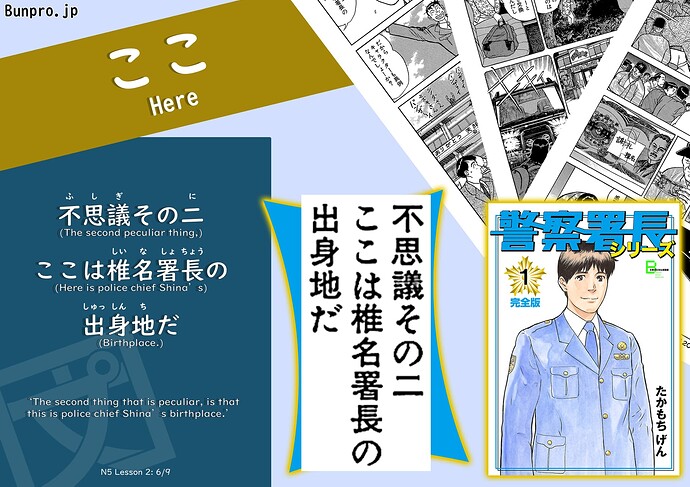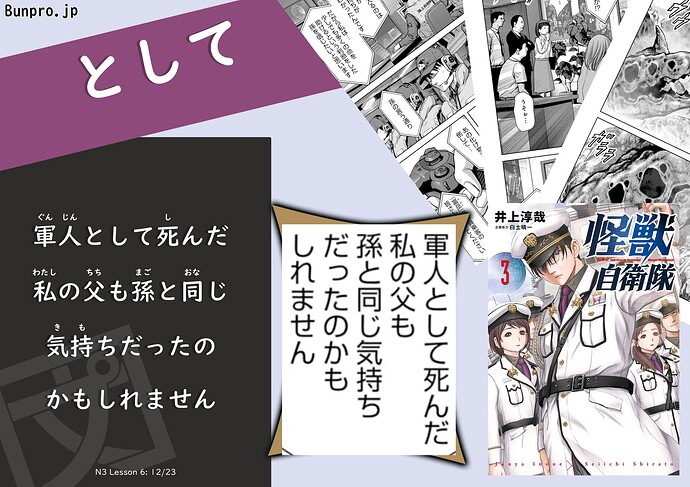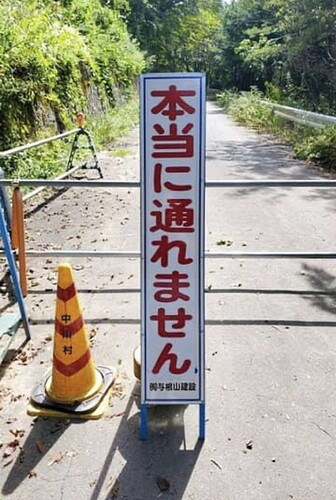T
Heidi, the girl from the Alps
I really wanted to go back to the mountain. In preparation for that day, I stored the soft white bread I promised to Peter’s grandma in the drawer, without eating it.
Summary
てしかたありませんでした - is a polite form of てしかたない・なかった which is a grammar pattern that expresses really wanting something. Related to~てたまらない(this is used more for physical wants) and ~てしょうがない
食べずに - V+ずに - without doing


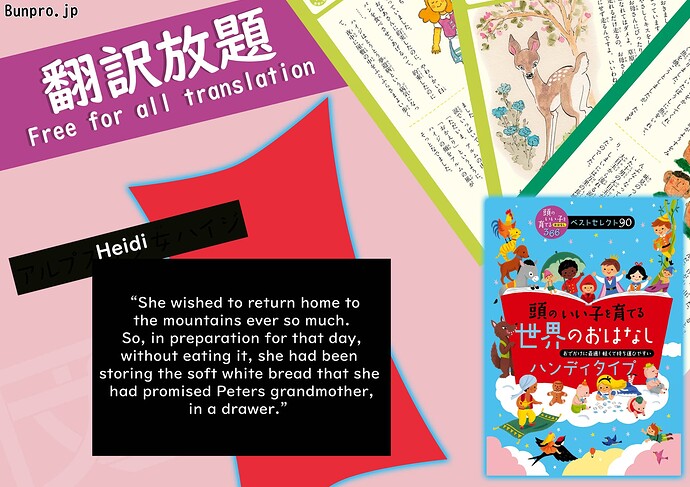
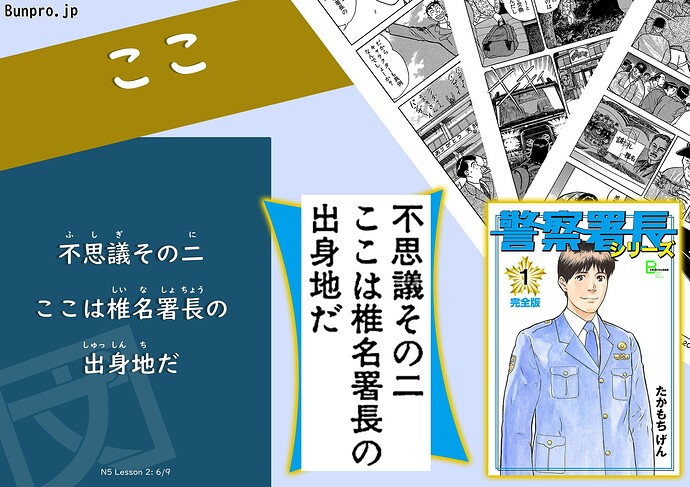

 ]
]